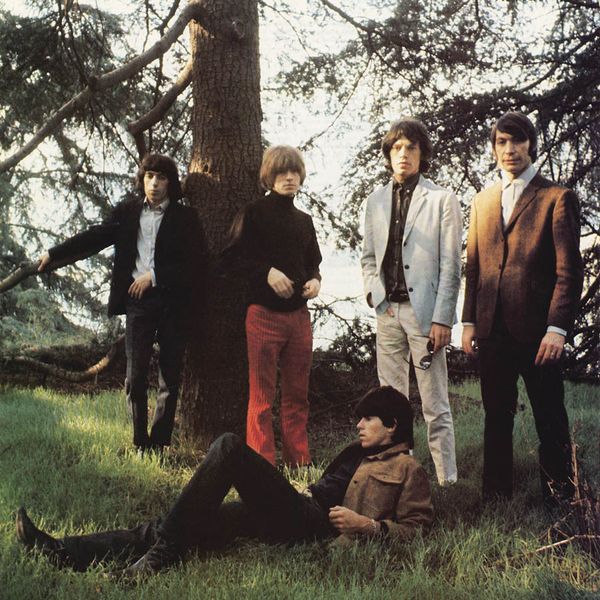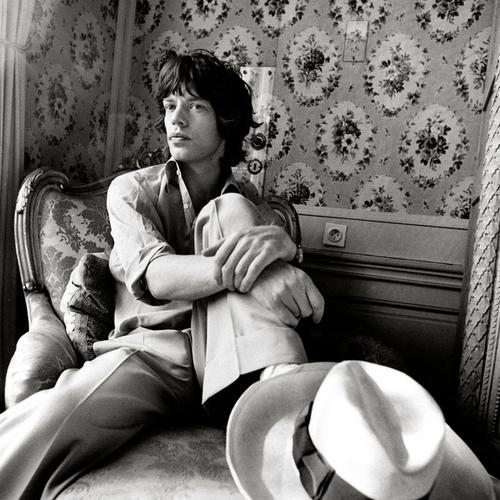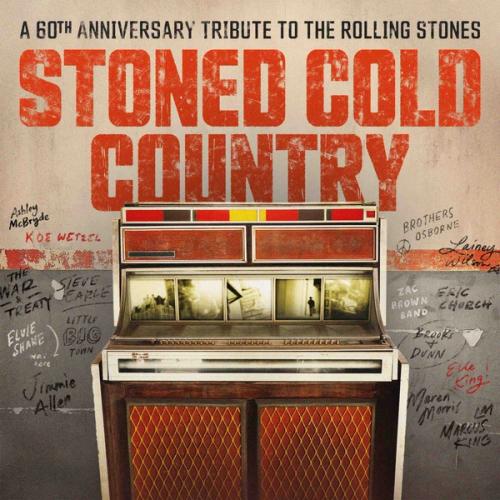




Link copied

On July 12th 1962, right at the height of a long hot summer, Claude King was sitting at the top of the country singles chart, risking life and limb to climb Wolverton Mountain in pursuit of the hand of Clifton Clowers’ fair daughter.
Some four-and-a-half-thousand miles east, a rather different challenge was taking place; five unknown English blues musicians stumbled onto the stage of London’s Marquee Club to play their first ever gig. The lead singer, a well-spoken young fellow studying at the London School of Economics, was interviewed for Jazz News especially for the occasion and was a little bit concerned by the potential audience reaction. “I hope”, said Mick Jagger, “that they don’t think we’re a rock’n’roll outfit”.
Ms. Clowers and Mr. King are now long gone, marital status unknown, but the Rolling Stones are still very much with us, 60 years into a career that saw them long ago march out of rhythm & blues and straight into history and myth. They’re a seven-decade litmus test, lightning rod and travelling circus for rock’n’roll in all its glory, and when they come to your town – and especially if that town is Nashville, Tennessee - you’d better be ready. You’d better be properly ready if the very same Mick Jagger has proclaimed you as one of his favourite artists and has asked you to drop by with your guitar.
“It’s just bizarre” marvels Brad Paisley, when asked to describe the feeling of waiting in the wings and knowing that your next move is to walk on stage and play with the Rolling Stones.
“How many bands can you hear just one snare hit, or one strum, and know it’s them?”, he continues. “Mick can make one noise – it doesn’t even have to be a word – and it’s Mick! That’s just an amazing mark on music. But the experience of playing with them is more than just standing on stage. It’s the stories backstage, it’s the mumbling of Keith Richards, the sense of humour of Ronnie Wood, the focus of Mick – or the shepherd’s pie in the dressing room! They’re powered by shepherd’s pie!”
Country has been a recurring marker on the Stones' musical map of American influences - here, we take a look back at 15 occasions where the band went south, and west, and came back with an authentic twang of their own.
Rural delicacies aside, Brad’s a country guy and they’re a rock band. How does that work?
“They’re in the top five country bands in the world! When you think about ‘Honky Tonk Women’, ‘Dead Flowers’ and ‘Sweet Virginia’ - they’re country. Even when you consider a more progressive song like ‘Sympathy for the Devil’, there’s aspects within it that we’ve adopted in country music. We’ve done some cool grooves like that. I think they have influenced us - this current generation of country artists – as much if not more than any band who ever walked the earth that you would call just a country band. You can gauge anybody’s credibility in country music based on the influence they’ve had”.
March 17th saw the release of the highly anticipated Stoned Cold Country. Produced by CMA Awards executive Robert Deaton to celebrate the Stones’ 60th anniversary, the compilation record features a who’s who of modern Nashville, from Zac Brown and Ashley McBryde through Jimmie Allen, Eric Church, Elle King, The War And Treaty, Maren Morris and beyond.
Deaton reckons it’s both a tribute and a showcase, and he certainly wasn’t short of volunteers to take part. As Lainey Wilson attests: “The impact The Rolling Stones have had on country music is undeniable, so this project felt really natural to be a part of. When I found out who else was going to be on the record, I felt like one of the cool kids. Every artist on this record had their own take and did things how they wanted to do them.”
That’s not the easiest thing to do, mind you, especially if the luck of the draw has given you one of the Stones’ most iconic songs to try and make your own. Elvie Shane, for example, got ‘Sympathy for the Devil’.
“’Sympathy for the Devil’ isn’t what the title would suggest. I find it to be more of a cautionary tale”, he shared. “All of these atrocities committed in each line were the doings of us, humans – not the Devil - so have some sympathy for the scapegoat. The message is important, so I watched a bunch of footage of the Stones in the studio for weeks trying to figure out how to make this song come to life.”
“I know Mick originally wrote it as a Bob Dylan/folky rock song” Shane continues. “I found out it was inspired by a quote out of a book called Master and Margarita. So, I read the book to get in Mick's head - I wanted to see what he was seeing, what he was feeling when he wrote it and match the effort he put into writing and producing this song. Weeks later, Keith came in and put a samba beat behind it. Knowing how much work they put into this song to get it perfect, it didn’t feel right for little ol’ me to go in and try to change things. I wrote the lyrics out over and over and over again.I figured if it was that important to them, then we should stay close to the roots of the song. I believe I put more of myself into singing that song than I’ve ever put into a song in my entire life”.
Lainey, meanwhile, took on ‘You can’t Always Get What You Want’. “Robert and I felt like it was going to flow out naturally in the studio”, she says, “but I did want to make sure I captured a similar feeling to the original – a feeling of knowing sometimes life looks different than you thought, but better than you imagined. The Rolling Stones represent going against the grain and doing things how “you” want to do it. If folks talked about their loud music and long hair, they made their music louder and hair longer. I love the ‘let’s give them something to talk about’ mentality”
Wilson rather sums the whole thing up. It’s unlikely that, back in the days when the long-haired Stones were the filthy enemies of society, Bill Monroe or Jim Reeves could have imagined a world where country music would doff their hat in such a spectacular and effective way, let alone Brian Jones or Charlie Watts would entertain such a fantasy. After all they weren’t really a country band at all. Not then anyway.
Former Stones bassist Bill Wyman once explained that what made the band different to everybody else - different in an inimitable way - was the fact that unlike any other drummer in rock history, Charlie Watts followed Keith’s playing and so was always fractionally behind the beat, whereas Bill had the ability to play ever so slightly ahead of it. The resultant tension made the Stones’ music weave, wobble and sway in a unique way, but also made it fundamentally unsuited to the strict rhythm patterns that traditional country has always followed.
Then again, like a lot of things with them, it really depends on who you ask.
“I love country music,” says Mick Jagger, “but I think a lot of country music is sung with the tongue in the cheek, so I do it tongue in cheek. The harmonic thing is very different from the blues though. It doesn’t bend notes in the same way, so I suppose it’s very English, really. Even though it’s very Americanised, it feels very close to me, to my roots, so to speak.(When we do a country song) the actual music is played completely straight, but it’s me who’s not going legit with the whole thing, because I think I’m a blues singer not a country singer – I think it’s more suited to Keith’s voice than mine”.
And if you ask Keith Richards, the boy who listened to Hank Williams right alongside Muddy Waters?
“I used to hang out with Gram (Parsons), sometimes not for the good. I survived, Gram didn’t. He turned me onto cats like Merle Haggard and George Jones. He crystallized country for me. Gram reshaped country music. He brought it up to date and made it hip.
“When Merle broke through, he was akin to Johnny Cash in the starkness of the sound” Richards continues. “But it was more melodic. You felt like this guy knew shit. There was a wisdom in it. I still sing and play ‘Sing Me Back Home’ on the piano. That’s my party piece, baby. It’s just so real, so touching”.
As Merle was to Keith, so are the Stones to the current – and future - generation of country stars. “There isn’t a single person in contemporary Nashville who hasn’t taken something from the Rolling Stones”, Brad Paisley celebrates. “We don’t adopt every element that they do, but we steal from them all the time in country”.
And what of the future? Well, Mick Jagger’s son is currently making a film about rebel country, so maybe the wheel has completely turned.
Elvie Shane seems pretty certain it has. “After doing this project, I have noticed their influence on my own music even more. After getting behind the mic, there’s a few songs of mine coming up that I can’t wait for people to hear that are heavily influenced by The Rolling Stones. They rock!”.
---
Stoned Cold Country is out now via BBR






